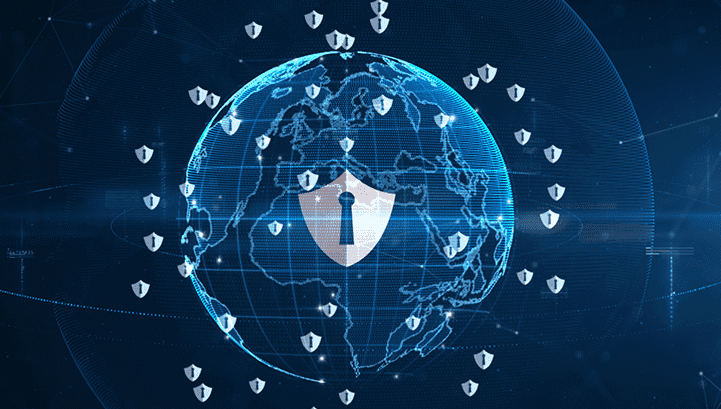Quantum Cryptography: The Next Frontier in Cybersecurity

In the fast-evolving landscape of cybersecurity, conventional encryption methods are becoming increasingly vulnerable to advanced computational capabilities, particularly with the impending rise of quantum computing. As digital threats grow more sophisticated, there is a pressing need for innovative approaches to secure sensitive data. Quantum cryptography, which leverages the principles of quantum mechanics, is emerging as a revolutionary solution that could reshape the future of secure communication and data protection. This next-generation technology promises to safeguard information in ways that were once thought impossible, offering an unprecedented level of security in the digital world.
The Growing Need for Enhanced Cybersecurity
Modern encryption techniques, such as RSA and AES, rely on the complexity of mathematical algorithms to protect data. These methods have served as the foundation of cybersecurity for decades, making it extremely difficult for unauthorized parties to access encrypted data without the proper keys. However, the development of quantum computers threatens to upend these security paradigms.
Quantum computers, unlike classical computers, use the principles of quantum mechanics to perform calculations at exponentially faster speeds. Tasks like factoring large prime numbers or solving discrete logarithms—processes upon which classical encryption depends—can be executed much faster by quantum computers. As a result, the security of even the most robust cryptographic algorithms could be compromised within minutes, if not seconds, once large-scale quantum computing becomes available. This creates a critical need for cryptographic techniques that can withstand the power of quantum computing.
What Is Quantum Cryptography?
Quantum cryptography is an advanced form of encryption that uses quantum mechanics to secure data. Unlike traditional cryptographic techniques that rely on mathematical complexity, quantum cryptography is based on the physical laws of quantum mechanics, which offer unique properties such as quantum entanglement and quantum superposition. These properties ensure that any attempt to intercept or tamper with the data is detectable, providing a level of security unattainable through classical methods.
The most prominent application of quantum cryptography is Quantum Key Distribution (QKD), which enables two parties to exchange encryption keys securely. With QKD, the security of the communication is guaranteed by the laws of physics, rather than the difficulty of solving mathematical problems.
How Quantum Key Distribution (QKD) Works
Quantum Key Distribution is the cornerstone of quantum cryptography. In QKD, encryption keys are transmitted using particles of light called photons, each of which can be in one of several quantum states. These quantum states represent bits of information (0s and 1s) that are used to generate a secure encryption key.
Here’s a simplified breakdown of how QKD works:
- Photon Transmission: One party (typically referred to as Alice) sends individual photons to another party (Bob). Each photon is encoded with a quantum state that corresponds to a bit of the encryption key.
- Quantum Measurement: Bob measures the incoming photons using randomly selected quantum bases (measurement angles). Because of the quantum principle that the act of measurement disturbs the photon’s state, Bob will not always measure the same state that Alice sent, but they can later compare results to determine the correct key.
- Public Comparison and Key Establishment: Once the transmission is complete, Alice and Bob publicly compare a subset of their measurements to check for consistency without revealing the actual bits of the key. The measurements that match are used to establish the encryption key.
- Eavesdropping Detection: If an eavesdropper (commonly referred to as Eve) attempts to intercept the transmission, the act of measuring the quantum states will disturb the photons, introducing errors in Alice and Bob’s results. This disturbance can be detected, alerting Alice and Bob to the presence of an intruder.
In this process, QKD provides a level of security that is inherently based on the laws of quantum physics. If an eavesdropper attempts to intercept the key, the disturbance in the quantum states will alert the legitimate parties, ensuring that they either abort the key exchange or take corrective measures.
The Advantages of Quantum Cryptography
Quantum cryptography offers numerous advantages over traditional encryption methods, particularly as the threat of quantum computing looms on the horizon. These advantages include:
1. Unconditional Security:
The security provided by quantum cryptography does not rely on computational complexity, as is the case with classical encryption methods. Instead, it is based on the fundamental principles of quantum mechanics, which ensure that any attempt to eavesdrop on the communication will leave detectable traces. This provides unconditional security, making it impossible for an attacker to intercept the key without being detected.
2. Quantum-Resistant:
Traditional encryption techniques are vulnerable to attacks by quantum computers, which could solve complex mathematical problems like factoring large prime numbers in a fraction of the time it takes classical computers. Quantum cryptography, on the other hand, is inherently immune to such attacks, offering a quantum-resistant solution to data protection.
3. Real-Time Detection of Eavesdropping:
In classical cryptographic systems, detecting an intrusion or breach can often take time, allowing an attacker to access sensitive data undetected. With quantum cryptography, any attempt to intercept or tamper with the communication immediately disturbs the quantum states, allowing for real-time detection of eavesdropping. This ensures that no data can be compromised without the legitimate parties being aware of the intrusion.
4. Long-Term Security:
Because the security of quantum cryptography is based on the laws of physics rather than the complexity of an algorithm, it provides long-term security. As computing power continues to grow, classical encryption methods will become increasingly vulnerable, while quantum cryptography will remain secure as long as the principles of quantum mechanics hold true.
Challenges and Limitations of Quantum Cryptography
Despite its many advantages, quantum cryptography also faces several challenges that must be addressed before it can achieve widespread adoption.
1. Limited Distance for Transmission:
One of the primary limitations of quantum cryptography is the distance over which secure key distribution can occur. In optical fiber networks, for example, the range is typically limited to around 100-200 kilometers without the use of quantum repeaters, which are still under development. This limits the practicality of QKD for long-distance communications at present.
2. High Cost of Implementation:
Quantum cryptography requires specialized hardware, such as photon detectors, quantum random number generators, and dedicated fiber optic communication channels. The cost of these components is currently prohibitive for widespread adoption, particularly for smaller organizations that may not have the resources to invest in such infrastructure.
3. Vulnerability to Side-Channel Attacks:
While quantum cryptography offers unprecedented security against direct interception, it is not immune to side-channel attacks. These attacks exploit weaknesses in the physical implementation of quantum systems rather than in the underlying cryptographic protocol itself. For example, flaws in photon detectors or other hardware could potentially be exploited by attackers, bypassing the security provided by the quantum encryption process.
4. Integration with Classical Systems:
Quantum cryptography is a relatively new field, and integrating QKD with existing classical cryptographic systems and telecommunications infrastructure presents a significant technical challenge. While hybrid approaches are being explored, ensuring compatibility and efficiency across both quantum and classical systems will require further advancements.
Practical Applications of Quantum Cryptography
As quantum cryptography matures, its potential applications in securing sensitive information across various industries are becoming increasingly apparent. Some of the key sectors that could benefit from quantum cryptography include:
1. Government and Defense:
Governments and military organizations handle vast amounts of classified information, making them prime targets for cyberattacks. Quantum cryptography can be used to protect state secrets, diplomatic communications, and sensitive military data from being intercepted by adversaries.
2. Financial Services:
The financial sector is one of the most heavily targeted industries when it comes to cyberattacks. By implementing QKD, banks and financial institutions can secure online transactions, protect customer data, and ensure the integrity of communication between financial entities, all while safeguarding against future quantum threats.
3. Healthcare:
The healthcare industry manages highly sensitive patient data, making it essential to secure medical records, patient information, and communication between healthcare providers. Quantum cryptography can play a critical role in preventing data breaches and ensuring patient privacy in an era of increasing digital healthcare services.
4. Telecommunications:
Telecommunications networks are essential to modern society, and securing them from cyber threats is crucial. Quantum cryptography can be used to protect internet traffic, secure satellite communications, and safeguard the transmission of sensitive data over long distances.
5. Cloud Computing and Data Centers:
As more organizations move to cloud-based infrastructures, ensuring the security of data in transit between data centers and users becomes a top priority. Quantum cryptography can enhance cloud security by providing quantum-resistant encryption for data storage and transmission, protecting against current and future cyber threats.
The Future of Cybersecurity in a Quantum World
Quantum cryptography is a revolutionary advancement in the field of cybersecurity, providing a solution that can protect sensitive data from both current and future threats. However, it is not a panacea. While QKD addresses the challenge of secure key distribution, it does not solve all cybersecurity issues. Other aspects, such as securing endpoints, monitoring for insider threats, and protecting data at rest, will still require classical cryptographic techniques and cybersecurity measures.
Nevertheless, as quantum computing continues to develop, the need for quantum-resistant encryption and data protection will only grow. Quantum cryptography will likely form a key component of future cybersecurity architectures, working in conjunction with post-quantum cryptography (algorithms designed to resist quantum attacks) to provide comprehensive protection in a post-quantum world.
In conclusion, quantum cryptography represents a significant leap forward in cybersecurity, offering a level of protection that is fundamentally unbreakable based on the principles of quantum mechanics. As quantum technology evolves, so too will the methods we use to safeguard our digital communications, ensuring that sensitive information remains secure in an increasingly connected world.
FAQs:
- What is quantum cryptography?
Quantum cryptography is a method of securing communications using the principles of quantum mechanics, offering unbreakable encryption based on physical laws. - How does Quantum Key Distribution (QKD) work?
QKD allows two parties to exchange encryption keys using quantum particles (photons), with any attempt at interception detectable due to the disturbance of quantum states. - Can quantum cryptography be hacked?
While theoretically unbreakable, practical implementations of quantum cryptography could be vulnerable to side-channel attacks that exploit weaknesses in the physical systems. - What are the main benefits of quantum cryptography?
Quantum cryptography offers unbreakable security, real-time eavesdropping detection, and quantum-resistant protection, making it ideal for securing sensitive communications. - Is quantum cryptography widely available?
While still in its early stages, quantum cryptography has been successfully tested in controlled environments, but widespread commercial deployment remains limited due to high costs and technical challenges. - What industries will benefit most from quantum cryptography?
Government, defense, finance, healthcare, telecommunications, and cloud computing are all sectors that could greatly benefit from the enhanced security provided by quantum cryptography.




